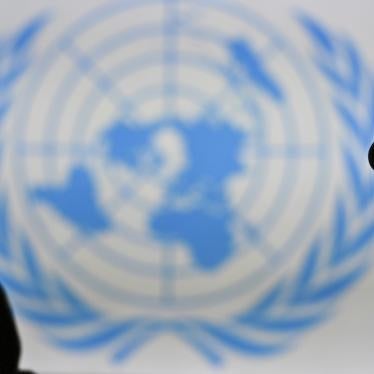Since the Human Rights Council adopted a resolution at its March 2012 session calling for action, the Sri Lankan government has taken no significant steps to provide justice for victims of abuse and accountability for those responsible for war crimes and violations of human rights in the country. Instead, over the last year, the Sri Lankan government has continued its assault on civil society, human rights defenders and media. Rather than making substantive moves toward ending impunity and supporting rule of law, the Sri Lankan government has opted for cynical gestures designed to keep the international community at bay. The latest attack was on the independence of the judiciary, in which the Rajapaksa administrationorchestrated the impeachment of the chief justice after she ruled a government-sponsored bill to be unconstitutional. The administration replaced her with a political ally of the government with a long record of rejecting accountability for rights abuses.
The UN Office of the High Commissioner for Human Rights has recognized this state of affairs in its report on Sri Lanka to this session of the Council and called for an independent and credible international investigation into alleged violations of international human rights and humanitarian law. The report echoed the findings of the UN Panel of Experts report of April 2011 which also called for such an investigation.
The government has taken no significant steps to investigate the numerous and credible allegations of war crimes and other serious human rights abuses committed by government forces and the Liberation Tigers of Tamil Eelam (LTTE) during the armed conflict that ended in 2009, which have been documented by the UN and other independent organizations such as Human Rights Watch, the International Crisis Group and Amnesty International. The authorities have not reported any criminal prosecutions for serious rights abuses committed during the final years of the conflict. Indeed, thus far impunity for these abuses has been total. Most disturbingly, an army court of inquiry set up by the government to look into these allegations issued a report on February 15 which fully exonerated the army from any liability for civilian casualties.
Minister Mahinda Samarasinghe, speaking before this Council at this session, has failed to provide any evidence of the government’s actions towards accountability. In an interview on March 7 in Colombo, he stated that the government had implemented “99 percent“ of the Lessons Learnt and Reconciliation Commission (LLRC) recommendations.This statement glosses over the fact that the government’s action plan for implementing the LLRC only contained about half of the report’s recommendations. Further, the most recent update to the implementation action plan only points to actions yet to be undertaken, still in progress or before committees not yet appointed.
The Sri Lankan government’s failure to hold its forces accountable for serious abuses, its persistent denial that its forces committed any war crimes, the lack of concrete action following the establishment of numerous commissions, and the military court of inquiry’s recent decision to exonerate the military of any responsibility for war crimes make it clear that neither the Sri Lankan people nor the international community can rely on Sri Lankan government processes to adequately investigate the allegations. In light of this, Human Rights Watch urges the Council to establish an international independent investigation to probe all allegations and respond once and for all to the world’s call for action.







